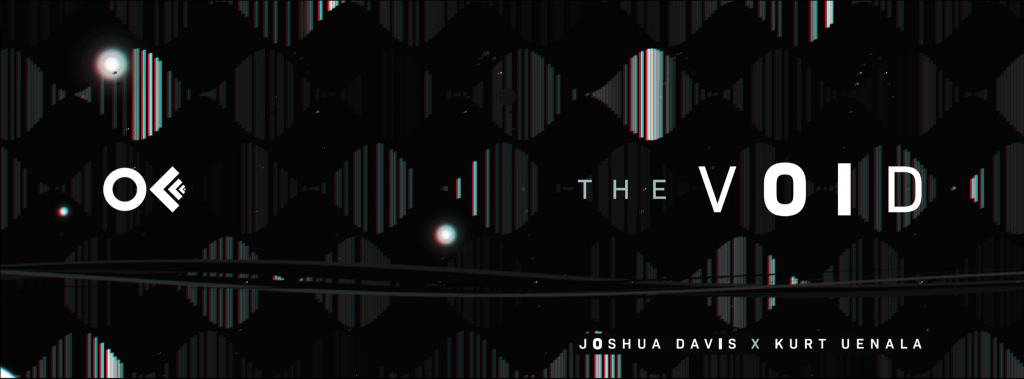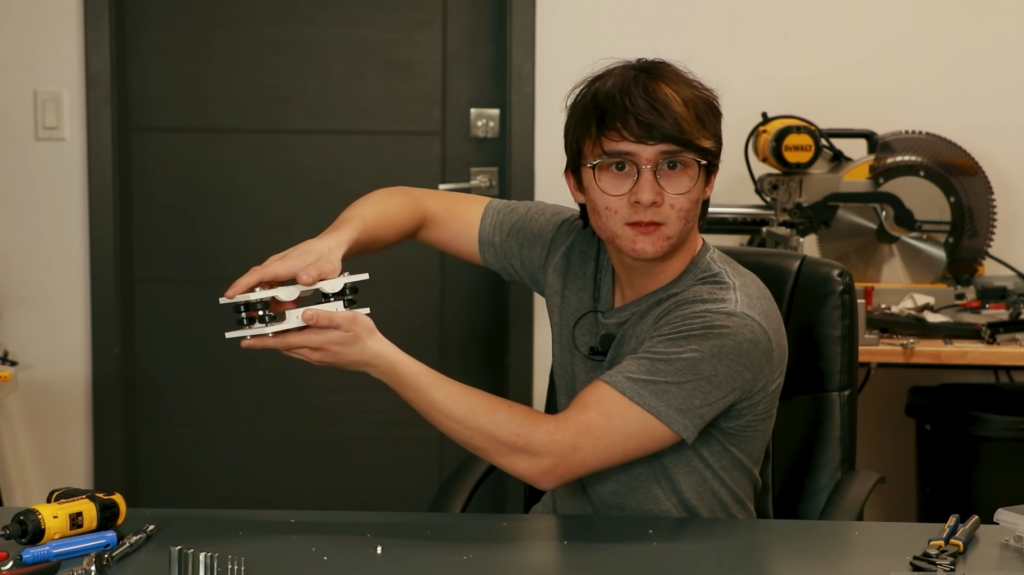//Luke Mattson
//section A
var w= 600
var h= 480
var headradius= w/3
var eyeRadius= headradius/4
var smileSize=.5
var skinR=255
var skinG=255
var skinB=255
var skin=1
function setup() {
createCanvas(w, h);
}
function draw() {
background(128,206,225); // background
fill(167,199,231);
strokeWeight(1);
stroke(140,170,220);
triangle(0,0,600,600,0,600);
//hair based on size of face
stroke(0);
fill(223,180,130);
ellipse(w/2,h/2-50,headradius,headradius*1.4);
//ears attached to face with 3 color possibilities
if (skin==1) {
fill(255,219,172)
} else if (skin==2) {
fill(224,172,105)
} else {
fill(241,194,125)
}
ellipse(w/2-headradius/2,230,30,60);
ellipse(w/2+headradius/2,230,30,60);
//random size face with 3 color possibilities
if (skin==1) {
fill(255,219,172)
} else if (skin==2) {
fill(224,172,105)
} else {
fill(241,194,125)
}
ellipse(w/2,h/2,headradius,headradius*1.4);
//random size eyes
fill(245,245,245);
stroke(0);
strokeWeight(1.5);
circle(w/2-headradius/5,h/2-headradius/5,eyeRadius)
circle(w/2+headradius/5,h/2-headradius/5,eyeRadius)
fill(0,0,200,30);
circle(w/2-headradius/5,h/2-headradius/5,eyeRadius/3)
circle(w/2+headradius/5,h/2-headradius/5,eyeRadius/3)
//random size mouth
stroke(249,21,21)
strokeWeight(1)
fill(255,127,127)
arc(w/2,headradius/5+h/2,150,80, smileSize, PI, OPEN)
//nose
stroke(0)
strokeWeight(.5)
line(300,240,290,275);
line(310, 280,290, 275);
//body attached to bottom of face
var bodyx = w/2
var bodyy = h/2 + .5*(headradius*1.4)
stroke(255,255,255);
strokeWeight(1.5)
line(bodyx,bodyy, bodyx, bodyy+40);
line(bodyx,bodyy+40,bodyx+10,bodyy+50)
line(bodyx,bodyy+40,bodyx-10,bodyy+50);
line(bodyx,bodyy+20,bodyx+10,bodyy+10)
line(bodyx,bodyy+20,bodyx-10,bodyy+10)
}
//assign random variables
function mousePressed() {
headradius= random(.4,.7)*h
eyeRadius= random(headradius/8,headradius/4)
skin = int(random(0,3))
smileSize=random(0,1)
}
Category: SectionA
LO-02: Generative art
I chose to take a look at the work of Joshua Davis. I chose to look at his project “the V01D,” which, like my last post, has to do with music. My last post dealt with the autonomous creation of music, however this project was the autonomous creation of an animation that goes along with musicThe V01D is a type of generative art, which means it was created with the use of an autonomous system. Davis used dozens of reactive algorithms in order to turn the music of Kurt Uenala into animation. When paired together (the animation and the music), it is a very cool experience. I admire this project because I enjoy music and enjoy generative art like this, and since it combines the two it is very cool. Davis used 36 different algorithms in order to create these seamless animations, which is a lot more than I thought would need to be used.

Michael Hansmeyer
I really admire the complexities of the geometric shapes that are created by Michael Hansmeyer, in particular, his “Subdivided Columns” work. In addition, I like how the pillars and the architecture have such minute details and the way the art is configured creates a sense of fantasy and magic. I like the “Subdivided Columns” piece because the code allowed for such flowy and symmetrical columns. While the art is very fantastical, it still operates as a normal column. I have no idea to begin analyzing the code for such detailed columns, but one thing is for sure, I feel like because of the level of detail, it would nearly be impossible for a normal architect to create this design. There do seem to be some repeating patterns, which tells me that there are loops involved in the algorithm. In addition, the way that the general shape of the columns flows smoothly in and out allows the columns to not only appear as smooth but sturdy.

Project 1: My portrait :)
function setup() {
createCanvas(500, 400);
background(255, 189, 233);
text("p5.js vers 0.9.0 test.", 10, 15);
}
function draw() {
stroke(0); //initialize stroke colour
strokeWeight(3); //initialize stroke weight
//think in layers, like on sketchbook/photoshop. neck is base, shoulders/chest and head above that... so neck first.
fill(240, 201, 146); //skin colour
rect(225, 250, 50, 60); //neck rectangle
ellipse(250, 200, 100, 120); //face ellipse
fill(148, 148, 148); //shirt colour
rect(150, 303, 200, 100); //shoulders/chest rectangle
fill(20, 13, 6); //hair colour
rect(180, 180, 45, 180); //hair left
rect(270, 180, 45, 180); //hair right
triangle(183, 180, 250, 125, 225, 180); // top hair left
triangle(315, 180, 250, 125, 220, 190); // top hair right
fill(255); //colour for inside of glasses
ellipse(275, 220, 40, 40); //glasses left
ellipse(225, 220, 40, 40); // glasses right
line(240, 220, 260, 220); //connector
noLoop;
}
Project 1: My Self Portrait
// Luke Mattson
// section A
function setup() {
createCanvas(600,600);
background(220);
text("p5.js vers 0.9.0 test.", 10, 15);
}
function draw() {
background(128,206,225); // background
fill(167,199,231);
strokeWeight(1);
stroke(140,170,220);
triangle(0,0,600,600,0,600);
stroke(0); // hair
fill(223,180,130);
ellipse(300,250,230,320);
fill(250,231,218); // ears
ellipse(412,276,30,60);
ellipse(188,276,30,60);
fill(250,231,218); // face
ellipse(300,300,230,320);
fill(245,245,245); // eyes
stroke(0);
strokeWeight(2);
circle(265,245,40,40);
circle(335,245,40,40);
fill(0,0,200,30);
circle(270,250,18,18);
circle(330,250,18,18);
line(300,260,310,300); // nose
line(310, 300,290, 295);
fill(255,160,160); // mouth
ellipse(300,350,25,35);
line(310,230,350,215); // eyebrows
line(290,230,250,215);
stroke(255,160,160,40); // blush
fill(255,160,160,40);
ellipse(240,325,30,50);
ellipse(360,325,30,50);
noFill(); // chin
strokeWeight(2);
stroke(0);
arc(300,425,70,40, 2*PI+1/8*PI, PI-1/8*PI);
stroke(255,255,255); // body
line(300,500, 300, 460);
line(300,500, 310, 510);
line(300,500,290,510);
line(300,480,310,470);
line(300,480,290,470);
noLoop();
}
Project 1: My Self Portrait
function setup() {
createCanvas(600, 900);
background(220);
text("p5.js vers 0.9.0 test.", 10, 15);
}
function draw() {
//hair
stroke(0,0,0);
fill(0,0,0);
ellipse(300,450,350,400);
rect(130,450,340,230);
quad(130,450,130,700,470,450,470,700);
stroke(193,134,14);
fill(193,134,14);
rect(240,600,120,100);
//face in general
stroke(193,134,14);
fill(193,134,14);
ellipse(300,450,275,350);
stroke(235,163,20);
fill(235,163,20);
ellipse(300,450,230,350);
triangle(300,250,290,280,310,280);
stroke(193,134,14);
strokeWeight(7);
arc(300,600,50,15,PI,0);
noFill();
strokeWeight(2);
fill(255,255,255);
//features
//eyes
ellipse(240,400,60,25);
ellipse(360,400,60,25);
fill(77,53,6);
circle(240,400,25);
circle(360,400,25);
fill(0,0,0);
circle(240,400,15);
circle(360,400,15);
fill(255,255,255);
stroke(255,255,255);
rect(240,400,3,3);
rect(360,400,3,3);
stroke(193,134,14);
//eyebrows
stroke(0,0,0);
strokeWeight(8);
line(330,380,360,370);
line(330,375,360,365);
line(330,370,360,360);
line(360,370,400,385);
line(360,360,400,385);
line(330,380,330,370);
line(270,380,240,370);
line(270,375,240,365);
line(270,370,240,360);
line(240,370,200,380);
line(240,360,200,380);
line(270,380,270,370);
strokeWeight(2);
stroke(193,134,14);
//nose
strokeWeight(6);
line(290,410,285,470);
fill(235,163,20);
ellipse(300,470,30,20);
stroke(193,134,14);
line(285,470,275,490);
line(315,470,325,490);
fill(137,100,14);
ellipse(285,490,20,10);
ellipse(315,490,20,10);
fill(193,134,14);
rect(295,490,10,30);
fill(255,255,255);
strokeWeight(2);
//lips
stroke(195,12,67);
strokeWeight(12);
line(295,520,255,530);
line(305,520,345,530);
stroke(152,7,50);
strokeWeight(16);
line(262,532,338,532);
line(270,538,330,538);
stroke(195,12,67);
strokeWeight(12);
line(255,530,285,550);
line(345,530,315,550);
line(285,550,315,550);
strokeWeight (2);
stroke(137,100,14);
}
LO: My Inspiration
I think for me, I have always been extremely interested in code with a creative focus, so finding a place of inspiration was relatively difficult. When I was a kid, I was so obsessed with video game creation that by the time I had entered 5th grade, I had already mastered three different game-developing software. Whatever free time I had, I was either playing video games, watching youtube, or making my own games. However, when I entered middle school, I didn’t have the time to grow and flesh out my interest in computer science. But when I hit high school, I was scrolling through youtube and came across this content creator named Michael Reeves, who inspired me yet again to get back into coding. Although extremely lackluster, Michael Reeves was motivated by passion just as I was in elementary school. He only wanted to make projects that he thought were interesting; such as little robots and screaming Roombas. I admired him because all his work was original and authentic, and while he joked about it, he cared very deeply about each of his projects. The first video I watched was one of his earlier videos, where he created a real-life cursor using two motors that he hot glued together. Just by moving his mouse on the computer screen, the laser pointer connected to the motors would move on the wall in real life. I thought the idea was both hilarious and intriguing–and without thinking, I decided to recreate his idea. He had built and coded everything himself, so in the spirit of Michael Reeves, I decided to do the same. I continued to follow him through his youtube journey, watching in create more interesting projects such as the cursor. While simple, at first, his projects became more and more sophisticated as his skills continued to grow. For example, most recently he made a surgery robot that you could control simply by moving your hand through space. While his content I would say is not going towards anything right now, the future for me resides in his ideology. I believe that innovation derives itself from passion and authenticity in your own work and I aspire to continue that thought process in my future endeavors.

Project 1: My Self Portrait
function setup() {
createCanvas(600,600);
background(220);
text("p5.js vers 0.9.0 test.", 10, 15);
}
function draw() {
background(150,150,150);
ellipse((width/2),(height/2), 400,500);
ellipse(225,220,80,40) //orbit left
fill(0)
ellipse(225,220,37,37) //eyeball left
fill(255)
ellipse(375,220,80,40) //orbit right
fill(0)
ellipse(375,220,37,37) //eyeball right
fill(255,0,0)
arc((width/2), 420, 150, 100, 0, 3.14) //mouth
fill(255,192,203)
triangle(300, 280, 280, 350, 320, 350) //nose
fill(255)
stroke(0,0,150)
strokeWeight(6)
arc(225, 200, 80, 40, 3.2, -0.04) //eyebrow left
arc(375, 200, 80, 40, 3.2, -0.04) //eyebrow right
stroke(0)
line(300, 50, 80, 300) //hair left
line(300, 50, 80, 290)
line(300, 50, 90, 280)
line(300, 50, 90, 270)
line(300, 50, 95, 260)
line(300, 50, 95, 250)
line(300, 50, 100, 240)
line(300, 50, 100, 230)
line(295, 50, 100, 220)
line(290, 50, 100, 210)
line(285, 50, 100, 200)
line(280, 50, 100, 200)
line(275, 50, 100, 190)
line(270, 50, 100, 190)
line(265, 51, 100, 180)
line(260, 51, 100, 180)
line(250, 53, 100, 175)
line(240, 54, 100, 175)
line(230, 55, 100, 175)
line(300, 50, 520, 300) //hair right
line(300, 50, 520, 290)
line(300, 50, 510, 280)
line(300, 50, 510, 270)
line(300, 50, 505, 260)
line(300, 50, 505, 250)
line(300, 50, 500, 240)
line(300, 50, 500, 230)
line(305, 50, 500, 220)
line(310, 50, 500, 210)
line(315, 50, 500, 200)
line(320, 50, 500, 200)
line(325, 50, 500, 190)
line(330, 50, 500, 190)
line(335, 51, 500, 180)
line(340, 51, 500, 180)
line(350, 53, 500, 175)
line(360, 54, 500, 175)
line(370, 55, 500, 175)
line(235,47,365,47) //hair middle
line(233,49,368,49)
line(231,51,369,51)
line(230,53,370,53)
line(237,45,363,45)
arc(100, 310, 50, 60, 1.5, 4.75) //ear left
arc(500, 310, 50, 60, 4.75, 1.65) //ear left
noLoop();
}
Drawing my hair takes a long time because I have a unique hairstyle, but it’s been entertaining. I really enjoyed the process.
LO: My Inspiration
One interactive project that has inspired me is Van Gogh, the immersive experience. The project uses 360 projections, 15,000 ft squared screens, and virtual reality to make the paintings come to life, almost like you are stepping into the painting. The exhibit is authored and designed by Massimiliana Siccardi, with accompanying soundtrack by Luca Longobardi. The first exhibit was opened in France and later expanded to many other places. The exhibit was created with the help of 60,600 frames of video, 90,000,000 pixels and 500,000+ cubic feet of projections. For the Toronto location, they used Panasonic laser projectors and an internal network, as well as Panasonic’s Geometry Manager Pro Software to create the exhibit. This exhibit points to a future where art is not only on the canvas unmoving but interactive through virtual reality. With the rise of technology, it has opened up the doors to more art forms and also art forms that reimagine the past.
LO: My Inspiration
I admire an exhibition created by artistic director Gianfranco Iannuzzi who turned a place into a Vincent van Gogh wonderland. Iannuzzi used 140 laser video projectors that construct a world with only Van Gogh’s artwork. The use of mirrors and magnified images have successfully created an immersive environment. This is the perfect blend of technology and masterpieces.
The project’s creator might be inspired by the great artists’ artworks so that he wanted to create a spectacular space where the artists’ artworks can be presented in an unprecedented way. This project provides insight into the possibilities of the presentation of artworks. And for possibilities, it can be more than just visual art, there can be more and more immersive forms of sonic arts.
Link of the video of the exhibition:
https://vimeo.com/328457542
Artistic director: Gianfranco Iannuzzi
Artwork from: Van Gogh
![[OLD SEMESTER] 15-104 • Introduction to Computing for Creative Practice](../../../../wp-content/uploads/2023/09/stop-banner.png)